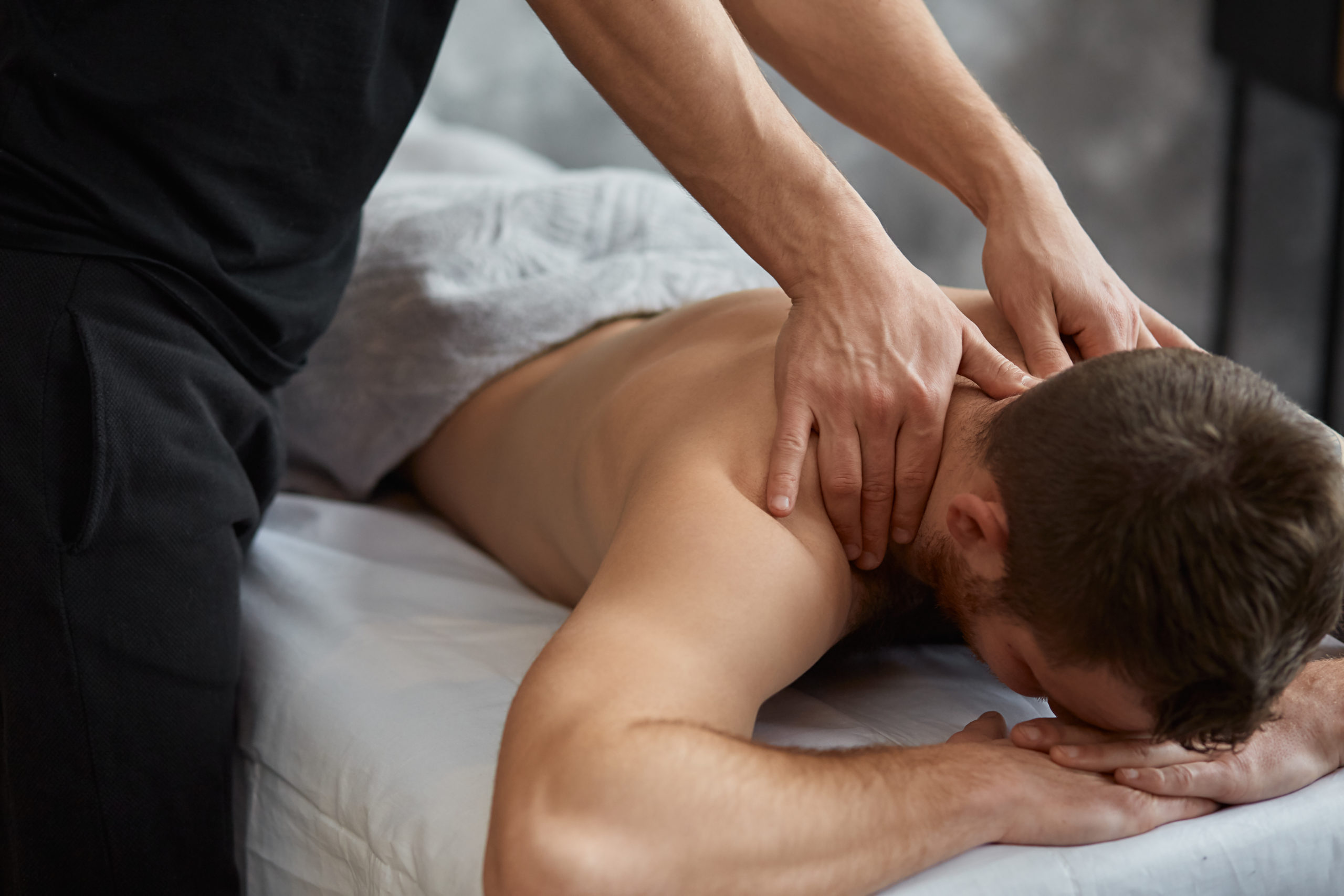
Massage is often used in conjunction with physiotherapy to assist recovery from both traumatic and chronic conditions. It incorporates specialised techniques to assist in the repair of damage to muscles and tendons to help restore your body physically and mentally. Our physiotherapists oversee the patients’ sessions so the appropriate area and techniques are used.

Who and what is Massage Therapy ideal for?
– Muscle sprains & strains often from sport/work
– Chronic postural problems/ back and neck pain
– Pain associated with tension & stress, eg: headaches
– Relaxation and anxiety associated problems
– Pregnancy and pre-natal
– Oncology massage
– Lymphatic drainage
Massage can be part of your treatment plan or just to relax tightened muscles. Either way our remedial therapists will help improve muscle balance and general wellbeing. Our massage room is designed to be private and comfortable with the right temperature and lighting to provide the most relaxing environment.
We specialise in a range of massage therapy:
Swedish Massage
This type of massage uses long, flowing strokes including sliding, kneading, rhythmic tapping, cross-fibre friction and vibration/shaking. It is especially useful to resolve soft-tissue swelling and relax tightness following exercise.
Deep Tissue Massage

This massage is used to relieve intense tension in the deeper muscles and the connective tissue or fascia. It involves series of repeated stretches and mobilisations to restore normality to the muscle tissue. It is not uncommon to have some muscle ache or soreness for one to two days after a deep tissue massage.
Trigger Point Therapy
Trigger points are tender points in muscle fibres that have shortened and feel like knots in the muscle. Compression of a trigger point may cause local tenderness, referred pain or local twitch response. By working on the trigger point and the surrounding muscle tissue, we aim to reduce or eliminate pain and improve ease of movement.
Oncology Massage & Lymphatic Drainage
Existing massage therapy techniques are modified for cancer patients both during and after treatment. Studies have shown that gentle massage may reduce pain, fatigue, nausea, anxiety and depression. Oncology massage also offers manual lymphatic drainage for patients experiencing lymphoedema. Patients say massage helps them to relax and can also improve sleep and quality of life.

